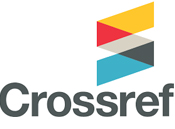Crossroads in Mathematics Games: Integrating Indigenous and Exotic Games
Abstract
In numerous countries and higher education institutions, the significance of indigenous games in mathematics education is highly recognized. Nonetheless, the increasing preference for exotic games has placed indigenous mathematics teachers in a challenging position. This research aimed to examine the awareness and understanding of mathematics teachers regarding indigenous games amidst this competition. Initially, the study employed a phenomenological approach, targeting 200 teachers but randomly selecting a sample of 70 for the quantitative phase. Subsequently, the qualitative phase involved in-depth interviews and observation checklists with five teachers to explore the issue further. The collected data was systematically coded and thematically analyzed, focusing on teachers' knowledge, misconceptions, and potential solutions. The findings revealed that some teachers had greater knowledge of indigenous games than exotic ones. Conversely, other teachers believed that exotic games facilitated faster learning outcomes. This divergence created a significant dilemma in choosing indigenous games for mathematics instruction. Despite the popularity of games like draft, playing cards, snake-and-ladder, and Ludo, the teachers ultimately recognized that Indigenous games such as biloo, bilore, gollaa, and mullaa provided superior learning outcomes. Therefore, stakeholders were recommended to revamp mathematics curricula to incorporate indigenous games more effectively.
References
M. Tangkur, M. J. Nabie, and C. A. Ali, “Mathematics Teachers’ Knowledge of Indigenous Games in Teaching Mathematics,” Al-Jabar J. Pendidik. Mat., vol. 13, no. 1, pp. 165–174, 2022, doi: 10.24042/ajpm.v13i1.11693.
C. A. Ali, “Ghanaian Indigenous Conception of Real Mathematics Education in Teaching and Learning of Mathematics,” Indones. J. Sci. Math. Educ., vol. 4, no. 1, pp. 82–93, 2021, doi: 10.24042/ijsme.v4i1.7382.
P. Akayuure and C. A. Ali, “Incorporating Indigenous Bukre Game Into Mathematics Lessons: A Teaching Experiment,” J. Math., vol. 3, no. 1, pp. 1–15, 2016.
S. A. Nxumalo and D. W. Mncube, “Using Indigenous Games and Knowledge to Decolonise the School Curriculum: Ubuntu Perspectives,” Perspect. Educ., vol. 36, no. 2, pp. 103–118, 2019, doi: https://doi.org/10.18820/2519593X/pie.v36i2.9.
M. D. Mosimege, “Opportunities and Challenges of African Indigenous Games,” in African Indigenous Knowledge Systems Conference, 2017. doi: 10.13140/RG.2.2.12602.80322.
M. H. M. Tavakoli, M. Shojaei, and K. Norouzi, “Effects of Local Indigenous Games on Cognitive Function, Physical Literacy and Academic Achievement Among Children 8 to 12 Years Old,” J. Sport. …, vol. 13, no. 3, pp. 333–354, 2021.
T. J. Moloi, M. S. Mosia, M. E. Matabane, and K. T. Sibaya, “The Use of Indigenous Games to Enhance the Learning of Word Problems in Grade 4 Mathematics: A Case of Kgati,” Int. J. Learn. Teach. Educ. Res., vol. 20, no. 1, pp. 240–259, 2021, doi: 10.26803/IJLTER.20.1.13.
A. S. M. Pereira and L. Venâncio, “African and Indigenous games and activities: a pilot study on their legitimacy and complexity in Brazilian physical education teaching,” Sport. Educ. Soc., vol. 26, no. 7, pp. 718–732, 2021, doi: 10.1080/13573322.2021.1902298.
L. Bonne and J. Higgins, “Game Playing and Fluctuations in Emotional Climate,” Cult. Stud. Sci. Educ., vol. 17, pp. 1063–1079, 2022, doi: 10.1007/s11422-022-10125-4.
B. N. Hadebe-Ndlovu, “Teachers’ Experiences of Indigenous Games in the Early Grades,” South African J. Child. Educ., vol. 12, no. 1, pp. 7–20, 2022, doi: 10.4102/sajce.v12i1.931.
H. Mulaudzi, R. Tshifhumulo, and T. J. Makhanikhe, “Exploring the Use of African Indigenous Games in Teaching Critical Thinking Skills,” in Research on Acquiring 21st Century Literacy Skills Through Game-Based Learning, South Africa: University of Venda, 2022. doi: 10.4018/978-1-7998-7271-9.ch022.
Ministry of Education, Mathematics Common Core Programme Curriculum (Basic 7 - 10). Accra: National Council for Curriculum and Assessment (NaCCA), 2020.
S. A. Tachie and B. F. Galawe, “The Value of Incorporating Indigenous Games in the Teaching of Number Sentences and Geometric Patterns,” Int. J. Cross-Disciplinary Subj. Educ., vol. 12, no. 1, pp. 4350–4361, 2021, doi: 10.20533/ijcdse.2042.6364.2021.0533.
J. Piaget, “Piaget’s theory,” in Handbook of Child Psychology: Vol. I History, Theory, and Methods, P. H. Mussen and W. Kessen, Eds. New York: John Wiley, 1983.
L. S. Vygotsky, “Mind in Society: The Development of Higher Psychological Processes,” Accounting in Australia (RLE Accounting). Harvard University Press, Cambridge, 2020.
S. A. Tachie and J. M. Molepo, “Exploring Teachers’ Meta-Cognitive Skills in Mathematics Classes in Selected Rural Primary Schools in Eastern Cape, South Africa,” Africa Educ. Rev., vol. 16, no. 2, pp. 143–161, 2019, doi: 10.1080/18146627.2017.1384700.
E. J. Sansome, “Building Teachers’ Pedagogy Practices in Reasoning, to Improve Students’ Dispositions Towards Mathematics,” Queensland University of Technology, 2016.
C. A. Ali, “The Didactical Phenomenology in Learning the Circle Equation,” Int. Electron. J. Math. Educ., vol. 17, no. 4, pp. 1–11, 2022, doi: 10.29333/iejme/12472.
Copyright (c) 2024 Journal of Research on Mathematics Instruction (JRMI)

This work is licensed under a Creative Commons Attribution-NonCommercial-ShareAlike 4.0 International License.






